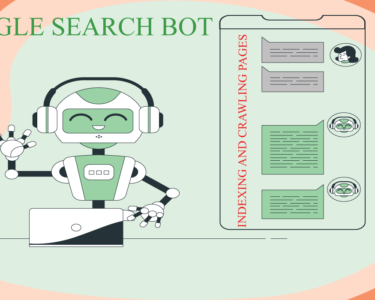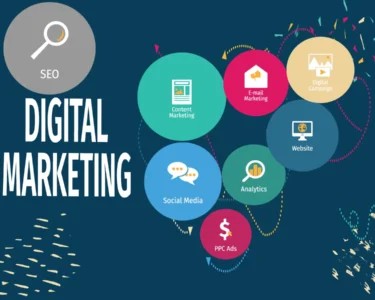Introduction
In today’s competitive online landscape, having a blog is not enough. So to stand out and attract visitors, you need to understand the power of SEO and the importance of optimizing your blog for search engines. Search Engine Optimization (SEO) has become crucial for businesses and content creators to drive organic traffic and improve visibility. Therefore, if you’re a blogger looking to maximize your blog’s potential, understanding the fundamentals and the power of SEO is a must.
In this comprehensive guide, we will explore the definition and types of SEO and delve into how Hostlingo can help you harness the power of SEO to help your blog thrive through increased organic traffic and enhanced visibility to your content.

What is SEO?
SEO stands for Search Engine Optimization. It encompasses a set of techniques and strategies used to optimize websites or blogs, as such making them more search engine-friendly and improving their chances of ranking higher in search results. The ultimate goal of SEO is to attract organic (non-paid) traffic and increase visibility by aligning with search engine algorithms.
Types of SEO:
1. On-Page SEO:
On-page SEO refers to the improvements to be applied to the content on your site to ensure that it’s search engine friendly. This involves optimizing various elements of individual blog posts , content and HTML source code of a webpage. These includes keyword research, optimizing Meta tags, optimizing headings, improving page loading speed, creating SEO-friendly URLs structure, optimizing images and multimedia content optimization. Thereby improving chance of ranking higher in search results.
2. Off-Page SEO:
Off-Page SEO focuses on optimizing activities outside of your blog, such as building high-quality backlinks, social media promotion, and online reputation management. This involves factors outside of the website itself that affect search engine rankings. influencer outreach, and guest blogging. Off-page SEO helps improve a website’s authority, credibility, and visibility on the internet.
3. Technical SEO:
Technical SEO ensures that your blog adheres to technical best practices, such as improving website speed ,structure and navigation, optimizing mobile responsiveness and friendliness, robots.txt files, canonical tags, schema markup, URL structure, XML sitemap creation, and browser caching. This focuses on optimizing the technical aspects of a website to enhance its crawling and indexing by search engines and also rank a website .
Importance of SEO for Blogs:
1. Increased Organic Traffic:
By implementing effective SEO strategies, your has blog improve organic search rankings and can rank higher in search results for relevant keywords. This means more visibility and organic traffic to your blog, which can result in higher engagement, conversions, and growth opportunities to your website. When your website appears higher in search engine results pages (SERPs), it attracts more potential customers who are actively searching for products or services related to your business.
2. Enhanced Visibility:
With proper optimization, your blog can become more visible in search engine results pages (SERPs). This increased visibility exposes your content to a wider audience, boosting your credibility, authority, and brand visibility.
3. Higher Conversion Rates:
SEO not only focuses on increasing traffic, but also attracting relevant and targeted visitors. By optimizing your website for specific keywords and phrases that align with your blog’s niche and user intent, you are more likely to attract a more relevant and targeted audience, and users who are ready to convert into customers, who are genuinely interested in your content, leading to higher conversion rates, sales and a loyal readership.
3. Cost-Effective Marketing:
SEO is a cost-effective marketing strategy in comparison to traditional advertising methods like print, TV, or radio ads. Unlike paid advertising, SEO efforts have long-term benefits. With effective SEO, you can target specific audiences, reduce marketing costs, and achieve long-term online visibility. Once you’ve optimized your blog and gained a valuable online presence, it can continue to generate organic traffic and visibility without the need for ongoing financial investments.
4. Boosts Brand Credibility and Authority:
When your website ranks high in search results, users perceive it to be more credible and trustworthy. Being visible on the first page of search results enhances your brand’s reputation and authority, making users more likely to choose your brand over competitors.
5. Long-Term Results:
The power of SEO is beneficial and yields a long term result Unlike other forms of online advertising, the effects of SEO can be long-lasting. Once you achieve high rankings, they tend to sustain with ongoing optimization efforts. This provides a continuous stream of organic traffic and reduces the need for paid advertising over time.
6. Improved User Experience:
SEO not only focuses on search engine algorithms but also on improving user experience on your website. By optimizing page loading speed, improving navigation, and creating relevant and valuable content, SEO enhances the overall user experience, leading to higher user engagement and better conversion rates.
SEO Best Practices for Blogs
1. Keyword Research:
Keyword research is the foundation of an effective SEO strategy. Conduct thorough keyword research to identify high-value target keywords and phrases that align with your blog’s niche. Use keyword tools SEMRush, Google keyword planner to analyze search volume, competition, and relevance to maximize your SEO efforts. By optimizing your blog posts around these keywords, you can increase your chances of ranking higher in search engine results pages (SERPs) and attract a targeted audience
2. On-Page Optimization:
Optimize blog posts by incorporating keywords naturally in headings, titles, Meta descriptions, and image alt tags. Hostlingo helps you simplify your on-page optimization by offering user-friendly interfaces and plugins that make it easy to optimize your blog posts. From meta tags to image optimization, you can effortlessly optimize your content for better search engine visibility. Additionally, you can use SEO analysis tools that help you identify areas for improvement within your blog’s structure, ensuring optimal indexing by search engines. Focus on creating high-quality, informative, and engaging content that provides value to readers. These are the power of SEO
3. Build quality Backlinks:
leverage on building quality backlinks, which are crucial for building your blog’s authority and trustworthiness in the eyes of search engines. This ensures your blog remains accessible, fostering trust among other bloggers and webmasters who may link to your content. High-quality backlinks can be gotten from reputable and relevant websites. Also guest posting, participating in industry forums, and engaging with influencers are effective ways to gain authoritative backlinks.
4. Social Media Promotion:
Share your blog posts on social media platforms to increase exposure and encourage readers to visit your blog. Social signals can indirectly boost your SEO efforts by generating traffic and generating shares.
5. Website Speed and Performance:
Site speed is a crucial factor in SEO, as search engines prioritize fast-loading websites. Hostlingo offers fast and reliable hosting services, ensuring optimal page load times for your blog. Also provides visitors seamless browsing experiences reduce bounce rates and increase engagement. This sends signals to search engines that your blog is valuable and deserving of higher rankings. It also ensures your blog is optimized for speed, and user experience. Improve website loading times, streamline navigation, and provide a seamless browsing experience to keep visitors engaged and satisfied.
6. Mobile Optimization:
With the majority of online traffic coming from mobile devices, having a mobile-friendly blog is essential. Hostlingo understands this and provides responsive website designs and themes that adapt to various screen sizes and browsers. This ensures your blog looks great and performs well on both desktop and mobile devices, improving your chances of ranking higher in mobile search results.
7. Analytics and Reporting:
To measure the success of your SEO efforts, you require powerful analytics and reporting tools. These tools provide valuable insights into your blog’s performance, including traffic sources, user behavior, and keyword rankings. By closely monitoring these metrics, you can identify what works and make data-driven decisions to continuously optimize your blog for SEO.
Conclusion:
SEO plays a crucial role in driving organic traffic and maximizing the visibility of your blog. With Hostlingo’s suite of SEO-friendly features and tools, bloggers are empowered to boost their blog’s visibility and increase organic traffic through comprehensive keyword research, on-page, off-page, and technical SEO optimization. This can enhance your blog’s chances of ranking higher in search results, attracting a targeted audience, and establishing your blog as a valuable resource in your niche.
By harnessing the power of SEO with Hostlingo, you can start optimizing your blog today and experience the benefits of increased visibility, traffic that can take your blog to new heights and reach a wider audience and success
Remember, SEO is an ongoing process that requires continuous optimization and adaptation to ever-changing search engine algorithms. Embrace SEO best practices to unlock the full potential of your blog and achieve long-term success.




